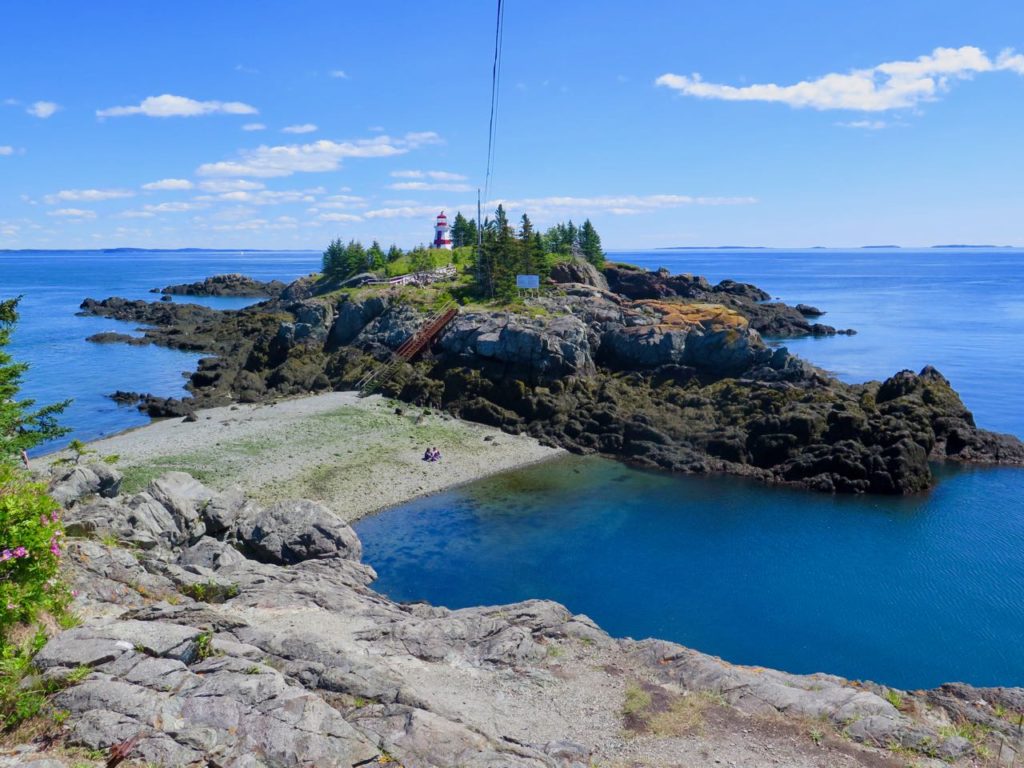
Visiting Campobello Island, New Brunswick, home to Roosevelt-Campobello International Park, is a must whenever I’m in way down east Maine.
If Down East Maine is remote, then Franklin D. Roosevelt’s beloved Canadian island is one step removed from remote. This sparsely populated, 9-mile-long New Brunswick orphan seduces me with its quiet disposition, soaring cliffs plummeting to churning seas, calming vistas of lobster and fishing boats chugging around nearby islands, and gentle network of hiking trails and carriage roads. Being here is like being of the world, but not in the world.
Here’s what you need to know to cross the border from Maine to Canada.
Tethered to Lubec, Maine, by the Franklin D. Roosevelt Memorial Bridge, the island is only accessible from its motherland by seasonal ferry. Tide and weather govern life on Campobello Island. It lies in Passamaquoddy Bay, sited at the mouth of the Bay of Fundy, home to some of the world’s biggest tides. At low tide, the ocean bottom reveals its secrets; at high tide, whales can be spied from the shore.
NOTE: Updated May 26, 2022
Roosevelt-Campobello International Park
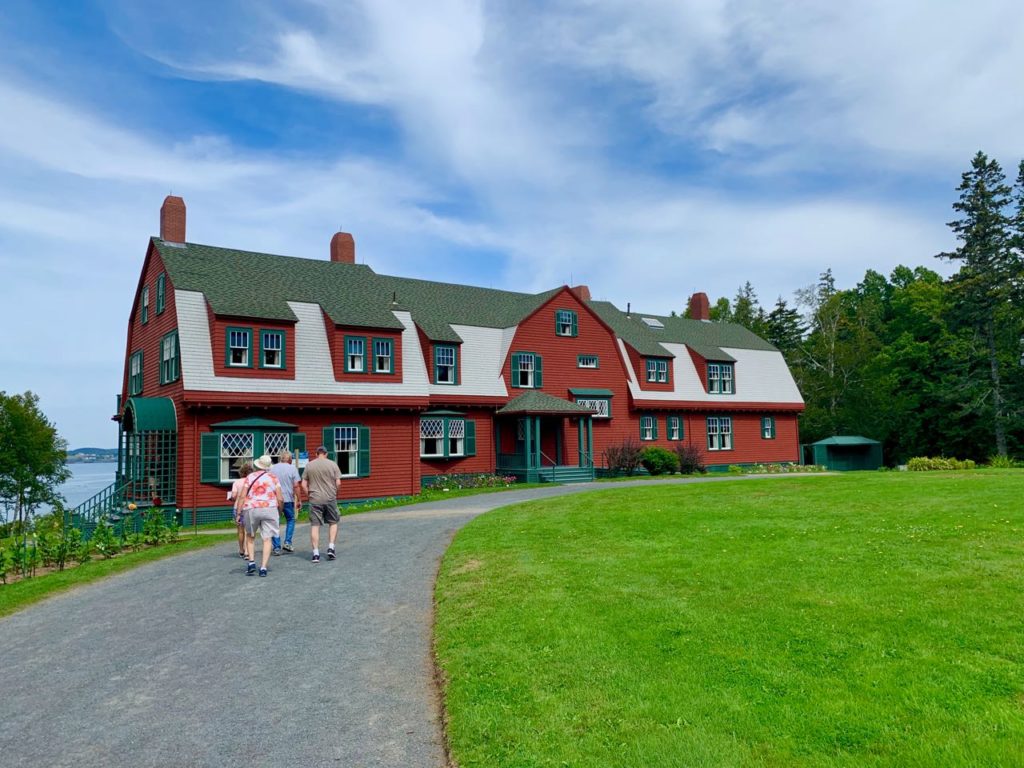
During the late 18th and early 19th centuries, Campobello Island, like Newport, R.I., and Bar Harbor, Maine, was a summer colony for well-to-do families who came for fresh air and clear water. The island is perhaps best known for its long association with President Franklin Delano Roosevelt. He summered here during his boyhood and later with his wife, Eleanor, and their children. And he was stricken with polio here in 1921.
The 34-room Roosevelt Cottage, built in 1897 and located about 1.5 miles from the bridge, is part of 2,800-acre Roosevelt-Campobello International Park. Also within the boundaries are four other restored cottages and a visitor center. The park, which celebrated its 50th anniversary in 2014, is administered jointly by the United States and Canada. The park’s visitor center’s exhibits and film (yes, it’s dated, but plans for a new one are in place) provide an excellent overview of the island and the Roosevelts.
A guided tour through the adjacent Roosevelt cottage offers a window into the family’s life. It appears as if they’ve just stepped out, perhaps for a picnic or a sail. A hand of cards is face down on the table; a hat rests on a bench; a knitting basket is topped with an unfinished project; toys scatter the playroom.
Tea with Eleanor

To scratch beneath the surface and to become less like voyeurs and more like invited family guests, sign up for the Tea with Eleanor experience.
Offered in two historical cottages, Tea with Eleanor is a treat — I think it’s a must-do Campobello experience. Enthusiastic park interpreters, many with family memories of the Roosevelts, share anecdotes and stories of Eleanor’s trials and triumphs in an engaging, well-researched presentation, while guests sip tea and nibble cookies. No two presentations are the same, as the interpreters bring their own experiences and histories and audience questions often take the conversation in different directions.
Two free teas are offered daily: The morning tea is first-come/first-served. You can make reservations for the afternoon tea.
The Fun Tour
This free, one-hour tour delivers a behind-the-scenes experience of the park. On this one, guides promise to reveal: “scandalous secrets, back stories, and the hidden nooks and crannies of the world’s only international park.” The family-oriented tours concentrate on the park, but you’ll learn about Campobello Island, too.
Beyond the Roosevelt cottage
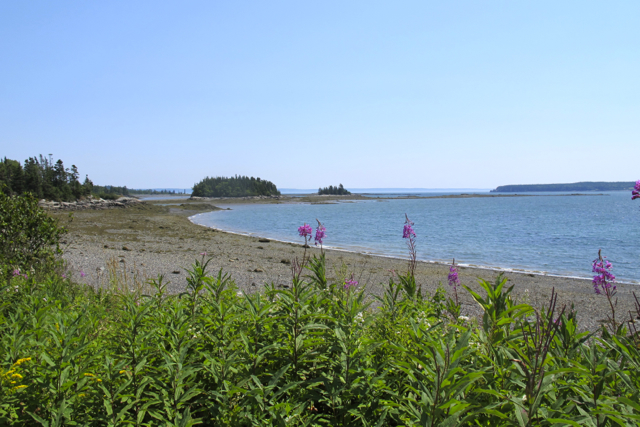
The park’s Visitor Center stocks maps and nature checklists for visiting the park’s extensive grounds, split on both sides of the road.
Frankly, it would be easy to spend days exploring the park’s natural assets. These include hiking trails, boggy ponds and lush woodlands, rocky beaches and soaring headlands. Carriage roads (open to cars, foot, and bicycles) lace the park; and 11 picnic areas pepper it.
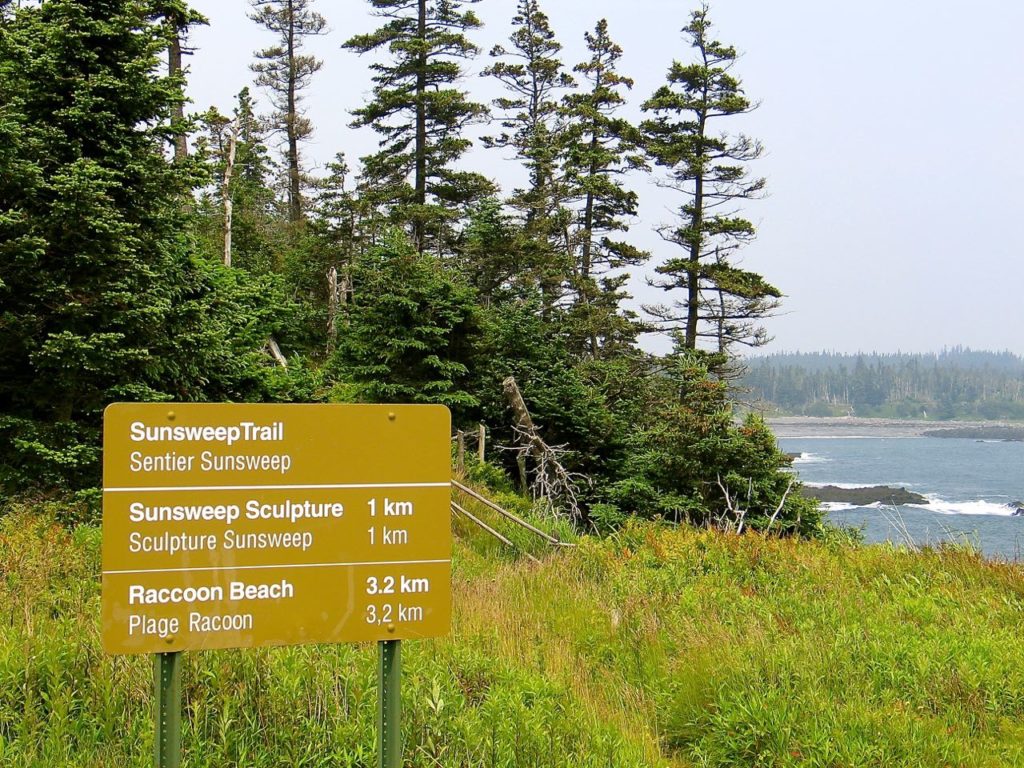
Hiking and biking
If time’s pressing, an easy 1.2-mile round-trip hike to Friar’s Head departs from near the visitor center and loops to the distinctive coastal land formation. An observation deck provides expansive views over scalloped shorelines and fir-trimmed islands.
 A cliff-edging masterpiece linking Liberty Point with Raccoon Beach headlines the park’s 8 miles of hiking trails. Roughly midway along is the Sunsweep Sculpture.
A cliff-edging masterpiece linking Liberty Point with Raccoon Beach headlines the park’s 8 miles of hiking trails. Roughly midway along is the Sunsweep Sculpture.
Equally irresistible are the whispered promises of pitcher plants, scrub pines, sphagnum moss, and lichens on the boardwalk looping through Eagle Hill Bog.
Strategically placed observation decks throughout the park deliver views to West Quoddy Head and Grand Manan Island. Listen for whales spouting and seals singing, but bring binoculars to aid in spying either.
Mullholland Light
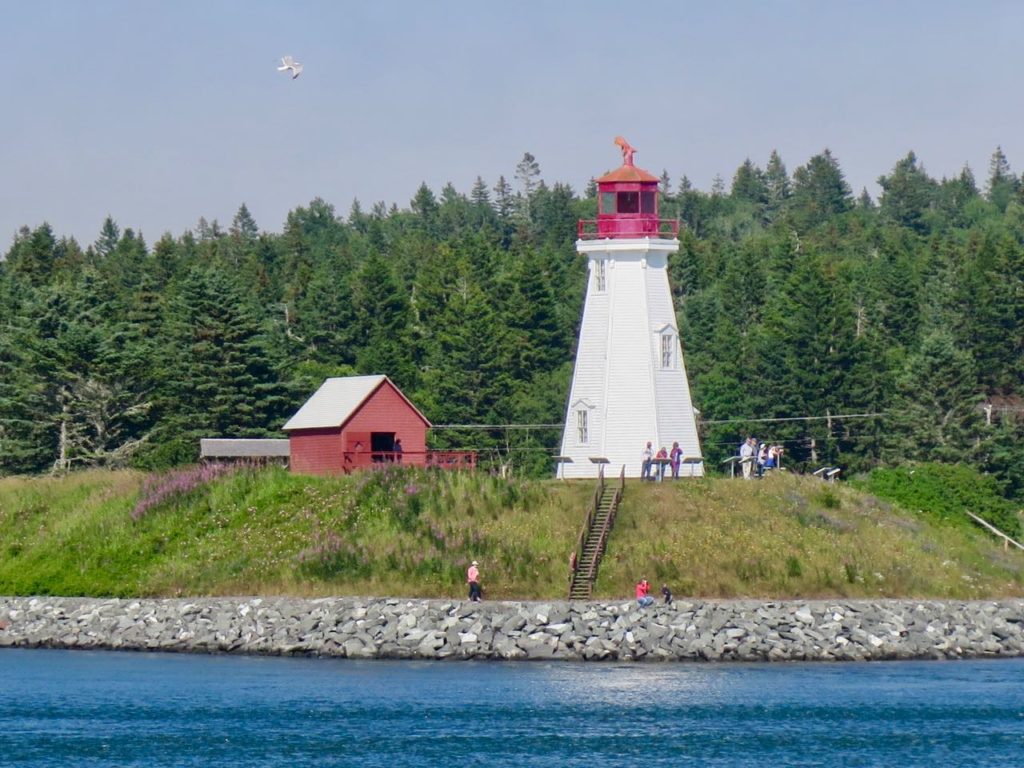
Mulholland Light, also owned by the park, is located just before the mainland bridge. A marine biology exhibit drawing from the New England Aquarium and Canadian Whale Institute is on view in the fishing shed. If the timing’s right and the tide is changing: Seals cavort in the boils, eddies, and whirlpools of the turning tide and eagles soar overhead.
Herring Cove
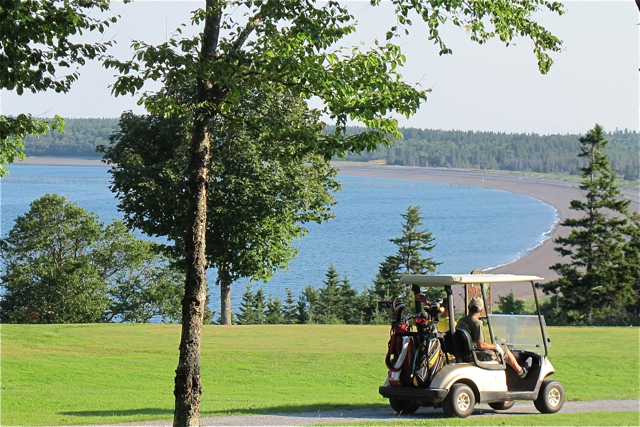
Trails also connect the international park with the abutting 1,049-acre Herring Cove Provincial Park, an underutilized sleeper with four additional miles of trails. Also here: a mile-long sand beach, freshwater lake, restaurant (not opening in 2022), campground, and nine-hole golf course.
Head Harbor Light on Campobello Island
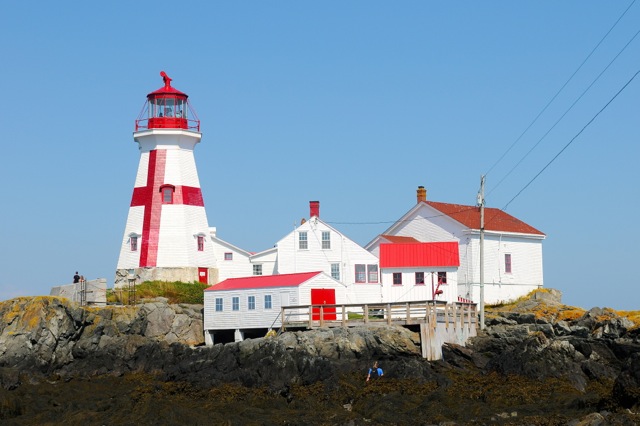
You’ll find the international and provincial parks on Campobello’s southern end, but another treasure, Head Harbor Light, punctuates the northern tip. View the 51-foot-tall beacon, with its distinctive red cross, from the shoreline. But if you’re game for an adventure and the timing is right, it’s even better up close. It’s located on an islet and accessible only during a four-hour window around dead low tide. Take heed to the warning sign:
Extreme Hazard. Beach exposed only at low tide. Incoming tide rises 5 feet per hour and may leave you stranded for 8 hours. Wading or swimming are extremely dangerous due to swift currents and cold water. Proceed at your own risk.
Thank the Friends of Head Harbour Lightstation for restoring the keeper’s house and tower. Guide Deanna Baldwin explained the restoration’s challenges on a tour through the house and up to the lantern room. Volunteers lugged out almost all supplies and furnishings during those four-hour windows. Tides only allowed a full day’s work on a few occasions .
Accessing the lighthouse, constructed in 1830, is an adventure. It requires clambering up and down metal ladders, crossing wooden bridges, following paths across islet cliffs, and navigating the ocean floor through slippery, often rockweed-covered boulders.
“This is the most magical place in the world,” Baldwin said. “You can sit here and watch the whales, minke, finbacks, humpbacks, sometimes even right whales.”
Other activities
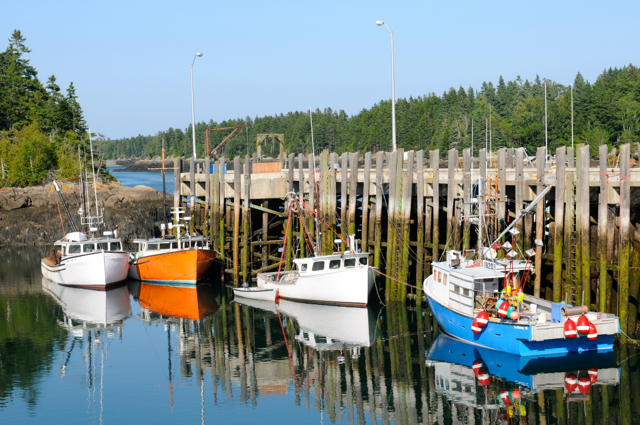
From the lighthouse, it’s an easy detour to Head Harbor Wharf, a postcard cove where the island’s fishing fleet docks.
You can also arrange for a whale-watching tour or a guided island tour while on Campobello Island.
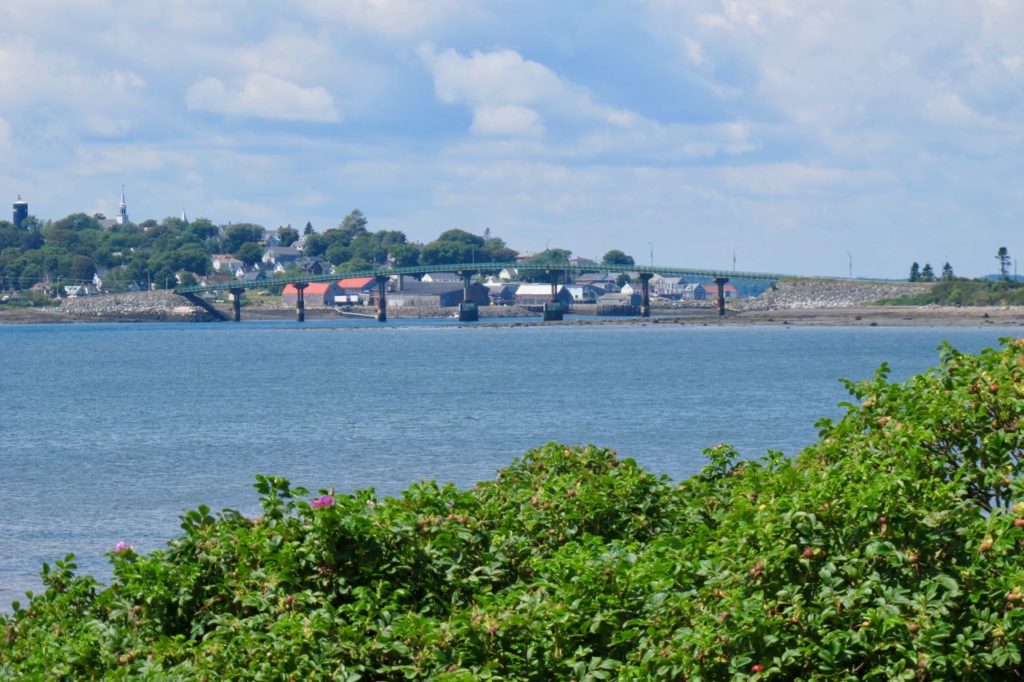
Details, details
• Campobello Island is on Atlantic Daylight Time (ADT), which is one hour ahead of Eastern Daylight Time (EDT), so if it’s 9 a.m. in Lubec, it’s 10 a.m. on the island.
• A U. S. passport or passport card is required for the border crossing. Visitors also need to register with ArriveCan.
• The only direct access from the U.S. mainland is via the Franklin D. Roosevelt International Bridge from Lubec, Maine. A two-stage car ferry connects Campobello with Deer Isle, N.B. A free ferry connects Deer Island with Black’s Harbor, N.B.
• If you’re traveling with a dog, you need proof of rabies vaccination to cross the border. Dogs must be leashed at all times in the park.
• The park staffs an information center on Campobello, just after the bridge; check here for tide information. Head Harbor Lighthouse (sometimes called East Quoddy Head) can be accessed two hours before and two hours after dead low tide. The requested donation to hike to the lighthouse is $5 pp. Lighthouse and tower tours are available for $10 pp or $25 per family. Donations support restoration efforts.
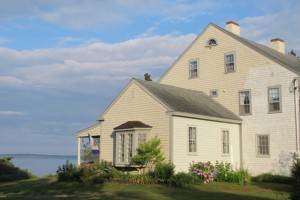 Lodging The Owen House is an oceanfront time warp, an early 19th-century bed & breakfast decorated with antiques and family treasures on 10 acres.
Lodging The Owen House is an oceanfront time warp, an early 19th-century bed & breakfast decorated with antiques and family treasures on 10 acres.
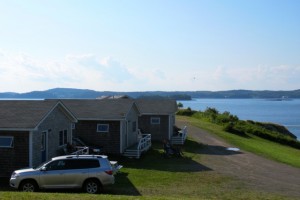 Pollock Cove Resort The word resort is a bit high falutin’ for this property. comprises one-and two-bedroom cottages with cooking facilities, all located on a grassy bluff with spectacular sea views. There’s a decent restaurant next door.
Pollock Cove Resort The word resort is a bit high falutin’ for this property. comprises one-and two-bedroom cottages with cooking facilities, all located on a grassy bluff with spectacular sea views. There’s a decent restaurant next door.
Campsites ($25-40) are tucked in the woods near the beach at Herring Cove Provincial Park.
And of course, there’s plenty of lodging in Lubec. My favorites include two masterful restorations:
The Inn on the Wharf is in a renovated cannery on a working wharf just steps from downtown Lubec. Rooms and apartments are on one level, and fish processing (lobster, periwinkles, etc.) continues below.
Quoddy Head Station offers studio to multi-bedroom apartments in a former Coast Guard lifesaving station on West Quoddy Head, near the lighthouse; some have ocean views.
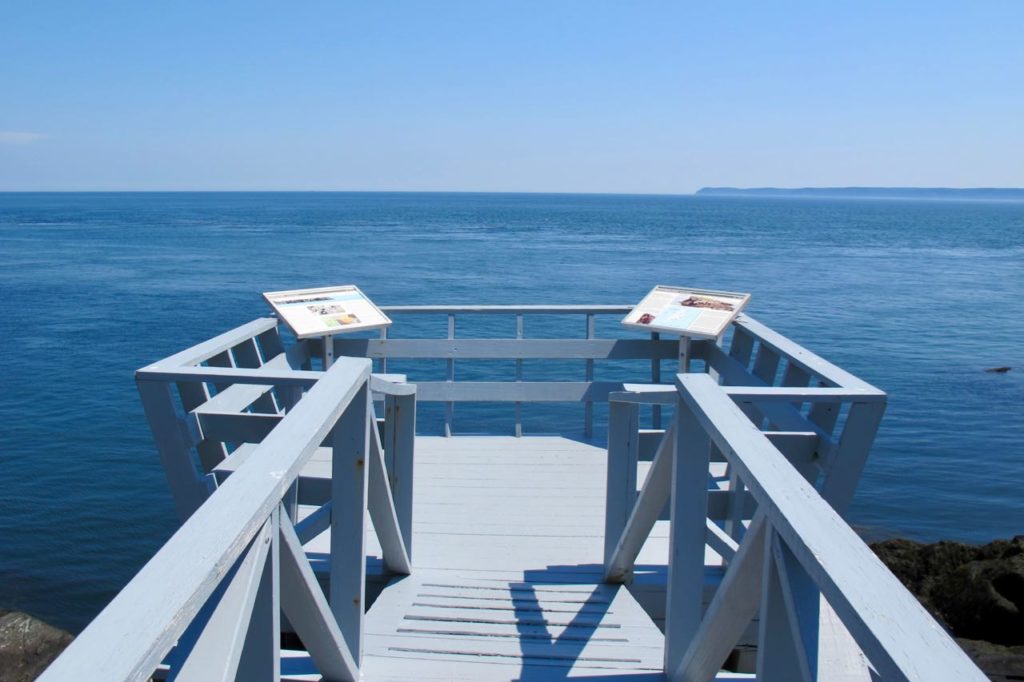




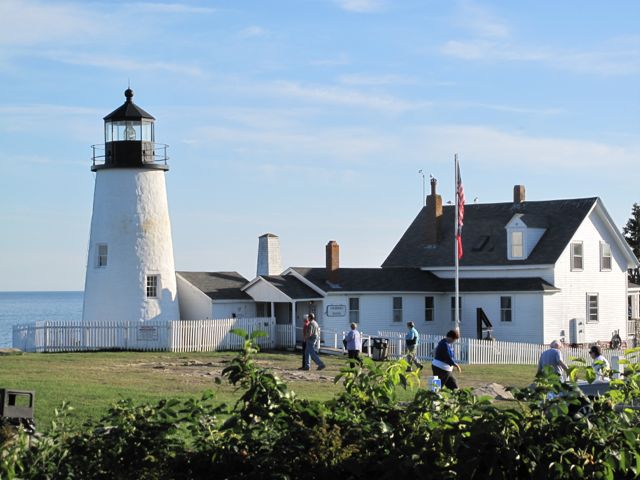









Well worth the trip and make sure to stop at Monica’s Chocolates in Lubec along the way! I’ve been to Campobello three times and am headed up there again next week with a friend who has not been there. It is truly not to be missed! Everything the Maven says is absolutely true.
Thanks! I’ll be dishing about Monica’s soon. It’s on my Maine Coast Chocolate Trail.
love you ™ notes…going there this weekend for the Marathon…very festive…loved last year!
great place to make images….love the “shabby” “chic” of Lubec!
Comments are closed.